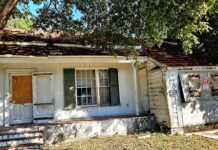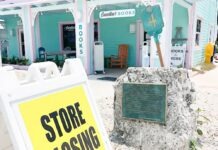
UPDATED: Feb. 21, 12 p.m.
A legislative fix to restore the 1,300 affordable housing units, revoked in a decision by the Third District Court of Appeals (DCA), should soon be on its way to Tallahassee, Marathon city officials say.
Of all the municipalities that lost units in the stunning Aug. 3, 2022 reversal – 300 each for Marathon, Islamorada and unincorporated Monroe County, with another 100 split between Key Colony Beach and Layton – the fate of the legislation is most crucial for Marathon, as it is the only city that has already allocated its units.
Many are already built or occupied, including a 52-unit development on 39th Street Gulf, or were slated to provide large quantities of affordable housing in Marathon, as in the case of the upcoming multi-building Seaview Commons developments off Coco Plum Drive.
Key West and Islamorada have accepted, but not allocated, their units, while Monroe County has yet to fully accept the units, given the years-long legal challenges from environmental attorney Richard Grosso on behalf of residents in Key West, Islamorada and Marathon.
The units were handed to the Keys in 2018 by then-Gov. Rick Scott through the state Department of Economic Opportunity, but were eventually deemed unlawful as the DCA ruled their “early evacuation” requirement violated Florida Statute 380.0552(9)(a)2, which requires comprehensive plans of cities within the Florida Keys Area of Critical State Concern (ACSC), established in 1974, to “maintain a hurricane evacuation clearance time for permanent residents of no more than 24 hours.”
As its own Area of Critical State Concern outlined in 1984, Key West’s units were protected. Segments of the Principles for Guiding Development in the Florida Administrative Code that govern the southernmost city’s evacuations provide simply for “an evacuation plan consistent with regional and county plans … which provides an opportunity for residents and visitors to evacuate to a place of safety during a natural disaster.”
A request for the third DCA to re-hear the case was denied, and the state Supreme Court on Jan. 13 rejected an escalation of the appeal, seemingly leaving a legislative fix as the only viable option.
The municipalities briefly considered accepting all the units through Key West, with its looser evacuation rules, and either later transferring them to the other cities or exchanging them for “clean” Key West units. But as Monroe County Attorney Bob Shillinger advised the Monroe County Commission at its Jan. 18 meeting, “We all have to live under that 24-hour rule, and so (transferring) those allocations would be subject to challenge. They’re unlawful. … So we’d be landing in litigation.
“If Key West had unrestricted allocations that they were willing to send north, that particular issue that I see would not be in play,” he added. “There is some precedent and acceptance of the logic that if they were in the permanent resident phase, those can be shared across jurisdictional boundaries.”
Other early discussions floated the possibility of increasing the time limits for the Keys’ 24-hour evacuation models to 30 or 36 hours. As the evacuation models have informed the entire ROGO/BPAS system that regulates development in the Keys for years, a change to the models could have extreme implications, leading Marathon to draft a bill that, as described by City Manager George Garrett, “only focuses on one thing.”
Marathon has provided a draft copy of its desired legislation to state Rep. Jim Mooney and Sen. Ana Maria Rodriguez, who will likely be charged with sponsoring the House and Senate versions of the bill, respectively. A copy of the draft provided to the Keys Weekly clarifies and narrows the allowable statutes used to review developments within the Florida Keys Area of Critical State Concern.
It also addresses a vague section of state statutes 125.01055 and 166.04151, which some previously interpreted as allowing near-unlimited construction of affordable housing units – and ONLY affordable units – outside of the typical ROGO/BPAS system.
Instead, targeted language in the legislation specifies that “within the Florida Keys Area of Critical State Concern, this provision shall only pertain to the approved 1,300 Workforce-Affordable Housing Building Permit Allocations, as approved during the June 13, 2018 meeting of the Governor and Cabinet … and shall be considered an exception to the 24-hour evacuation time constraints.”
Opponents of the units, including appellants Cecilia Mattino in Marathon, Catherine Bosworth in Islamorada and Naja Girard in Key West, argued that the additional units posed a public safety risk by coloring outside the lines of statutes designed to ensure safe and orderly hurricane evacuations along the limited U.S. 1 corridor.
“The 24-hour limit is there for a really good reason; it’s there to protect the people of the Keys,” Grosso told the Weekly on Feb. 9. “The idea that it’s only a good idea until we can’t develop anymore, and that it’s no longer important, is just incredibly reckless and dangerous. It flies in the face of the reality of the real-world limits to development in the Keys. … This is continued pursuit for development at all costs.”
Owners and occupants of the units already built in Marathon will watch the aforementioned legislation closely, as its outcome could have severe consequences. In 2001, Grosso successfully argued that a $3.3-million luxury apartment complex that was already constructed violated the comprehensive plan for Martin County, Florida and must be demolished.
Asked if he had a message for Marathon residents whose living situations hang in the balance with the fate of the 1,300 units, Grosso had a strong response.
“My message? What’s Marathon’s message to those people?” he said. “It’s not our responsibility that somebody was giving legal advice that it’s okay to build these units when they’re legally disputed. That wasn’t us.”
The Marathon Weekly contacted Mooney for comment on the legislation, but had not yet received a response at press time.






















